| |
| |
| |
| Presented By Facebook |
| |
| Axios AM |
| By Mike Allen ·Dec 14, 2020 |
| ☕ Good Monday morning. Today's Smart Brevity™ count: 1,161 words ... 4½ minutes. 🗳️ Situational awareness: Electors meet around the country today, in some cases with added security, to certify — spoiler alert! — Joe Biden as president-elect. - In Wilmington this evening, Biden will "deliver remarks on the Electoral College vote certification and the strength and resilience of our democracy."
|
| |
| |
| 1 big thing: Reliving racism in VR |
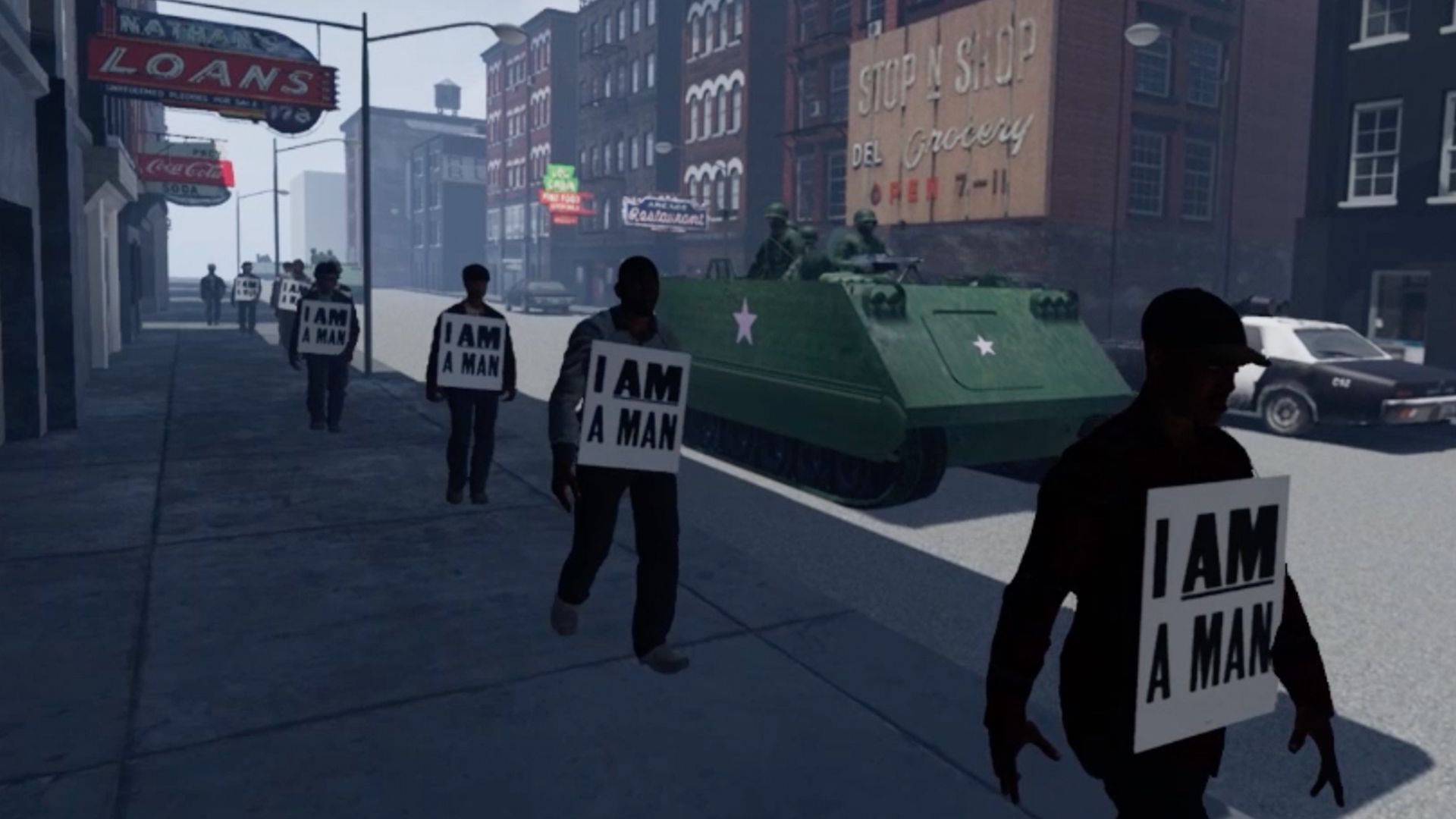 |
|
| Image from the VR film "I Am A Man." Photo courtesy Derek Ham |
| |
| New virtual and "augmented" reality technology is allowing users to experience 1960s civil rights marches, the agony of segregation for Black Americans, or life in a Japanese American internment camp, Axios race and justice reporter Russell Contreras writes. - Why it matters: For now, this is largely a tool for educators seeking new ways to teach young Americans about the legacy of slavery and racism. But there's growing commercial potential as more people become comfortable using technology to expand their horizons.
Projects created in universities and private labs force users to walk in the shoes of people who faced (and still face) discrimination: - "I Am A Man" transports you to the 1968 Memphis sanitation workers' strike, and events leading to the assassination of Dr. Martin Luther King, Jr.
- "Traveling While Black" takes you to Ben's Chili Bowl in Washington, as travelers show the difficulties African Americans experienced in the U.S. during Jim Crow.
- "Mapping Amache" visits virtual remodeling of Camp Amache in Granada, Colo., that detained Japanese Americans during WWII. The models were created by drones and VR technology.
How it works: Projects can be downloaded or watched via 360 video on VR headsets. - But you don't need a pricey headset: You can experience most of the projects on a laptop or phone.
What's next: "I Am A Man" creator Derek Ham is designing a new VR project based on the Negro Baseball Leagues: "You can get struck out by Satchel Paige, then see him having a hard time getting a hotel room." - Martinez is developing a digital map of forgotten Mexican Americans lynched in Texas that will include their names.
- Columbia social work professor Courtney D. Cogburn, lead creator of "1000 Cut Journey," lets participants embody a Black male from child to adult.
Share this story. |
    |
| |
| |
| 2. Russia hacks Treasury, Commerce |
| The Treasury Department as seen from the Washington Monument last year. Photo: Patrick Semansky/AP U.S. government agencies are scouring their networks for malware after the Treasury and Commerce departments were hacked in a months-long global cyberespionage campaign, AP reports. - The breach — which the N.Y. Times' David E. Sanger says was "almost certainly" by Russian intelligence — was discovered when a prominent cybersecurity firm, FireEye, was compromised.
- FireEye called it a "global campaign" with multiple global victims, including foreign governments and major corporations: "This campaign may have begun as early as Spring 2020 and is currently ongoing."
Why it matters: Authorities fear a large-scale penetration. - "This can turn into one of the most impactful espionage campaigns on record," said cybersecurity expert Dmitri Alperovitch.
Go deeper: Read the FireEye "Threat Research." |
    |
| |
| |
| 3. Tech-xodus doesn't scare Valley |
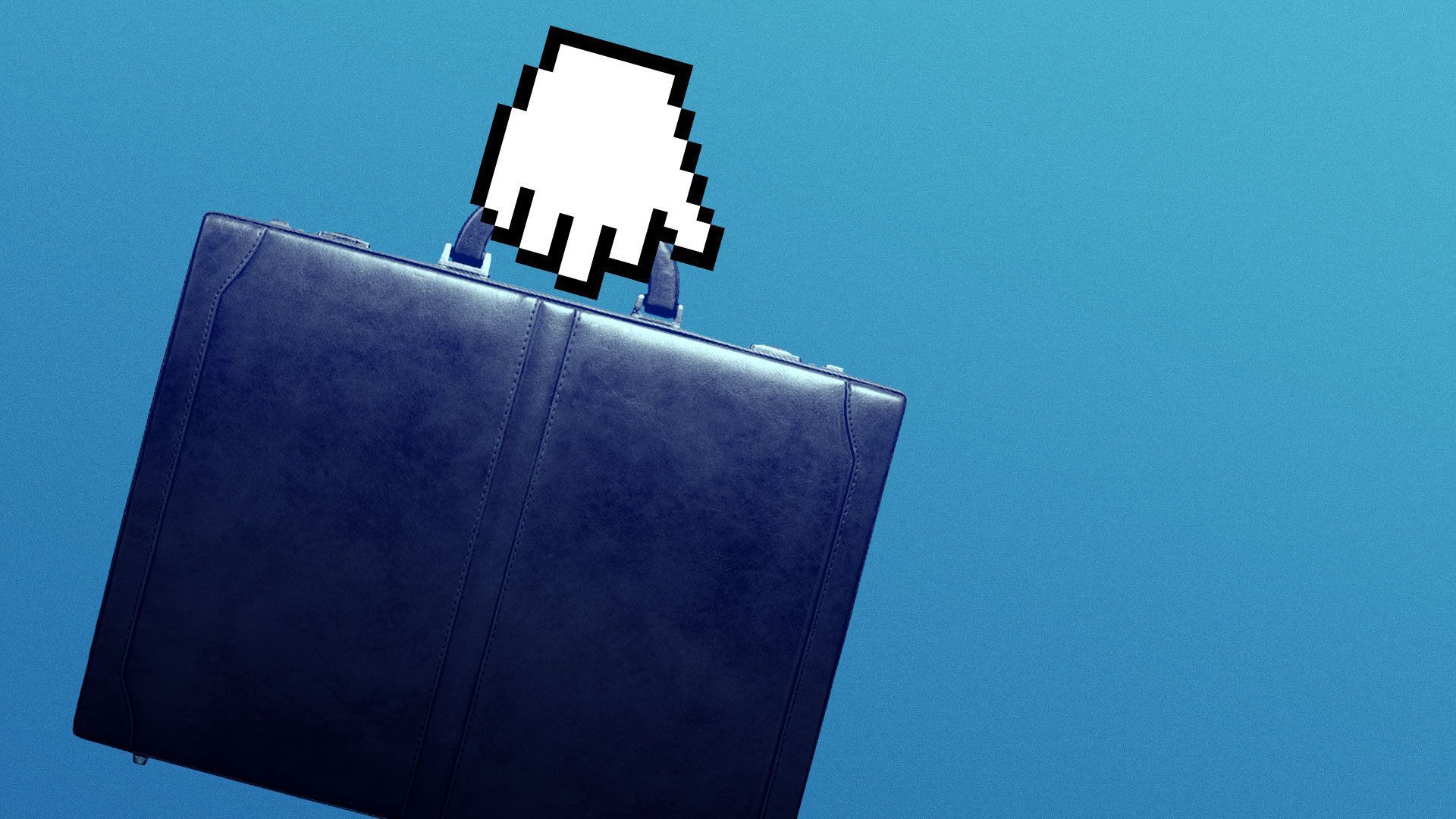 |
|
| Illustration: Eniola Odetunde/Axios |
| |
| You won't find anyone on Sand Hill Road who believes a few high-profile departures say anything about Silicon Valley's capacity to keep innovating, managing editor Scott Rosenberg writes from the Bay Area. - Oracle's Friday announcement that it's shifting its headquarters to Austin follows a previous move by Hewlett Packard Enterprise to Houston.
What's happening: These companies aren't shutting down their California offices. They've changed their legal addresses in part to flee the state's taxes and regulations. - Elon Musk, who has sparred with California over labor issues amid pandemic restrictions, recently announced he would move from L.A. to Texas, which is likely to save him a fortune in personal taxes.
As Axios AM has told you, America's dispersed urban centers will be the laboratories for many of tech's most world-changing new industries, including 5G, autonomous vehicles and "smart cities" systems. The bottom line: Neither Google nor Facebook has shown the slightest public interest in moving their home bases, and Apple's $5 billion UFO-style headquarters can't exactly take flight. |
    |
| |
| |
| A message from Facebook |
| Facebook supports updated internet regulations |
| |
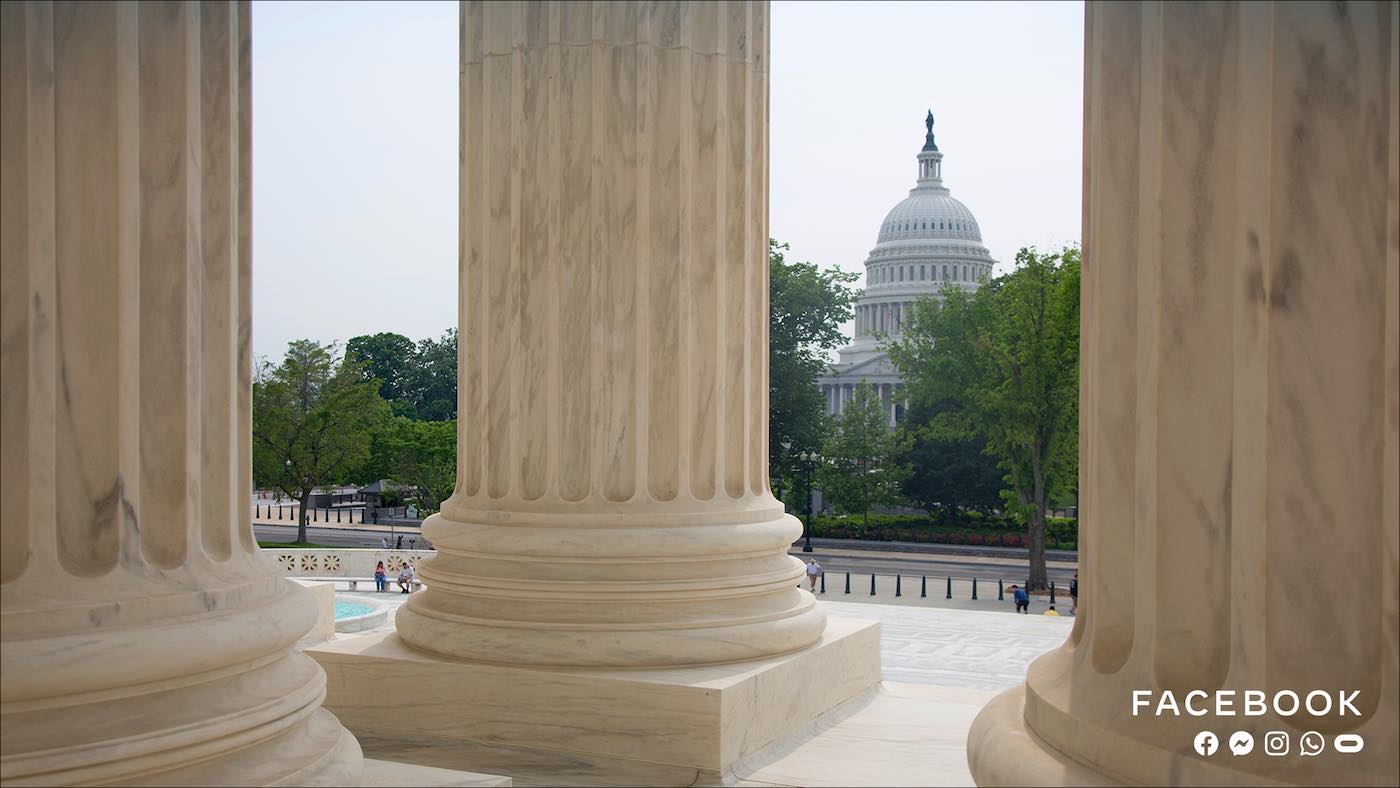 |
| |
We support updated internet regulations to set clear rules for today's toughest challenges and hold companies, including Facebook, accountable for: - Combating foreign election interference.
- Protecting people's privacy.
- Enabling safe and easy data portability between platforms.
Read more |
| |
| |
| 4. 💉 Trump nixes early West Wing shots |
 |
|
| Workers yesterday move one of the first vaccine shipments to hit the ramp at the UPS Worldport in Louisville. Photo: Michael Clevenger/Getty Images |
| |
| After the N.Y. Times reported a plan to fast-track COVID vaccines for White House staff, President Trump tweeted: People working in the White House should receive the vaccine somewhat later in the program, unless specifically necessary. I have asked that this adjustment be made. I am not scheduled to take the vaccine, but look forward to doing so at the appropriate time. Thank you! 🗞️ How it's playing ... Today's New York Post cover: |
    |
| |
| |
| 5. State, local officials see rising threats |
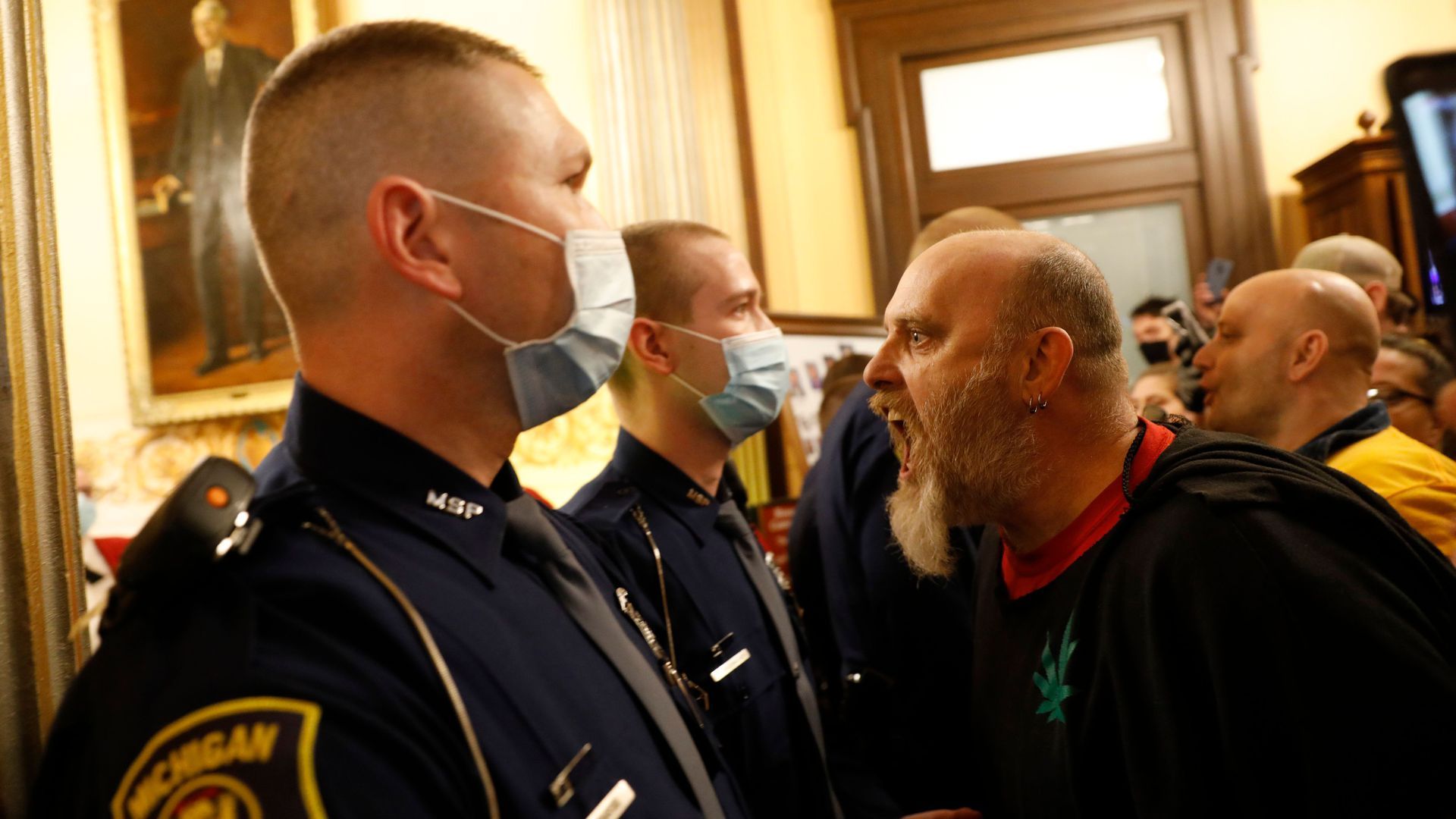 |
|
| In April, Michigan State Police keep shutdown protesters from entering the House chamber in Lansing. Photo: Jeff Kowalsky/AFP via Getty Images |
| |
| As Michigan electors meet to hand Joe Biden his 16 electoral votes, state Senate and House offices will be closed due to "credible threats of violence," according to Senate Majority Leader Mike Shirkey (R). - Why it matters: "State and local officials of both parties have warned that President Trump's increasingly desperate tweets about election fraud are fueling the potential for violence" against public servants, WashPost reports.
|
    |
| |
| |
| 6. Harder Line: Climate change boosts divisive tech |
 |
|
| Illustration: Annelise Capossela/Axios |
| |
| The urgency of climate change is compelling support for controversial technologies across the political spectrum, Amy Harder writes in her weekly Harder Line column. - Julian Brave NoiseCat, an expert at progressive think tank Data for Progress, tells Axios his mindset has shifted in two areas: Nuclear power, which emits zero carbon, and technology that captures carbon dioxide from facilities' emissions.
The big picture: The UN, the International Energy Agency, and most scientific and technical experts say nuclear power and carbon-capture technology are essential to reach global goals to neutralize emissions by mid-century. - This is in addition to — not in replacement of — drastic increases in renewable energy. Citing those experts, Biden's climate plan supports the tech too.
- The technologies have also gained bipartisan support in both Congress and state governments.
Keep reading. |
    |
| |
| |
| 7. Cleveland Indians to change name |
 |
|
| In September, Indians and Yankees players and coaches stand for the national anthem. Photo: David Dermer/AP |
| |
| Cleveland's MLB team will be dropping its "Indians" nickname as soon as this week, following years of protests by Native American groups and others who have decried the name and team imagery as racist, USA Today's Jace Evans reports. - Cleveland said it would review the franchise's nickname this summer after a similar announcement by what's now the Washington Football Team.
President Trump tweeted: "Oh no! What is going on? This is not good news, even for "Indians". Cancel culture at work!" |
    |
| |
| |
| 8. 🍽️ 21 Club closes for good |
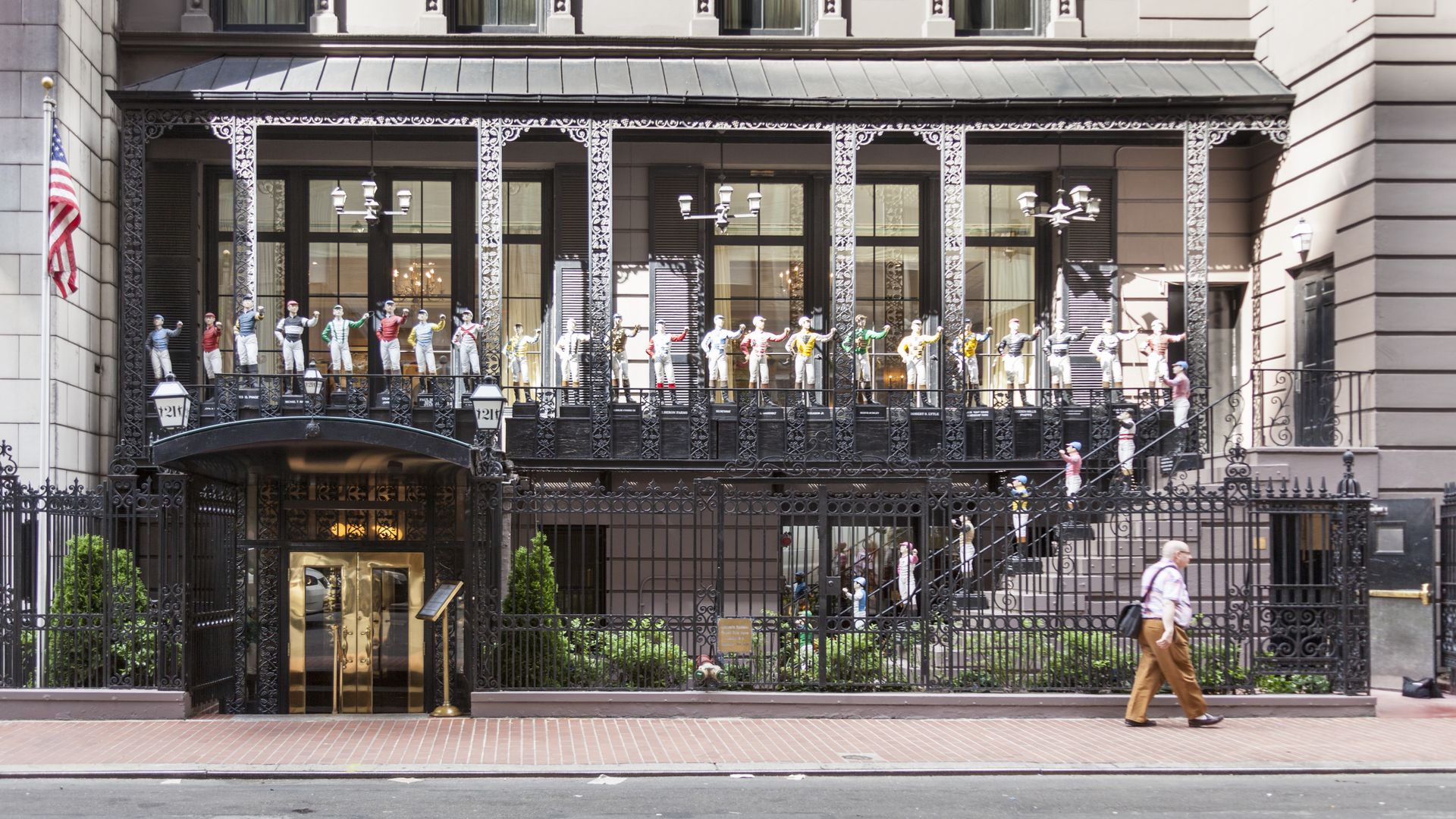 |
|
| Photo: Mel Longhurst/VW Pics/Universal Images Group via Getty Images |
| |
| New York City's iconic 21 Club — "a favorite haunt for John Steinbeck, Ernest Hemingway and Frank Sinatra, and a dining spot for nearly every president since FDR" — is closing its doors after 90 years, the N.Y. Post reports. - Why it matters: One of America's most famous Prohibition-era speakeasies will be one of the casualties of the mass economic pain inflicted by the coronavirus on restaurants in New York and across the country.
|
    |
| |
| |
| 9. 🔎 Remembering John le Carré, 89 |
| John le Carré at home in Cornwall, England, in 1983. Photo: Jacob Sutton/Gamma-Rapho via Getty Images John le Carré, the spy-turned-novelist whose narratives defined the Cold War espionage thriller — and brought acclaim to a genre critics had once ignored — died of pneumonia (not COVID-related) in Cornwall, England, at 89. - Why it matters: His books (including "Tinker Tailor Soldier Spy") grapple with betrayal, moral compromise and the psychological toll of a secret life, AP's Jill Lawless writes from London.
- In the spymaster George Smiley, le Carré created one of 20th-century fiction's iconic characters — a decent man at the heart of a web of deceit.
The success of 'The Spy Who Came in from the Cold" (his third book, out in 1963), about a mission to confront East German intelligence in a divided Berlin, left him bewildered and conflicted, The Times of London reports (subscription): Le Carré disclosed in 2013 that the manuscript had been approved by the secret service because it was "sheer fiction from start to finish." He said: "This was not, however, the view taken by the world's press, which with one voice decided that the book was not merely authentic but some kind of revelatory Message From The Other Side, leaving me with nothing to do but sit tight and watch, in a kind of frozen awe, as it climbed the bestseller list and stuck there, while pundit after pundit heralded it as the real thing." Go deeper: Read an excerpt from "The Secret Pilgrim." |
    |
| |
| |
| 10. Christmas tree shortage drives up prices |
 |
|
| Marisa Burly drives away after purchasing one of the final trees available at a Christmas tree lot in Chicago. Photo: Scott Olson/Getty Images |
| |
| Eight-foot noble firs are selling for as much as $2,167 on the streets of Hong Kong, as a global Christmas-tree shortage drives up prices, The Wall Street Journal's Lucy Craymer reports (subscription): - What's happening: "The pandemic means millions are unable to travel over the holiday season, and are celebrating at home instead. That's produced a spike in demand for trees—and a run on decorations."
Matthew Virgin loads a Christmas tree for Keshav Merchant and Caitlin Kelly at a seasonal sales lot in Chicago. Photo: Scott Olson/Getty Images |
    |
| |
| |
| A message from Facebook |
| It's time for updated regulations to improve privacy standards |
| |
 |
| |
| We continue to take action to build privacy into our products and give people the tools to help manage their privacy like Privacy Checkup and Off-Facebook Activity. But there's more to do. We support updated internet regulations to improve privacy standards. Read more |
| |
| 📬 Thanks for starting your week with us. Please invite your friends to sign up for Axios AM/PM. |














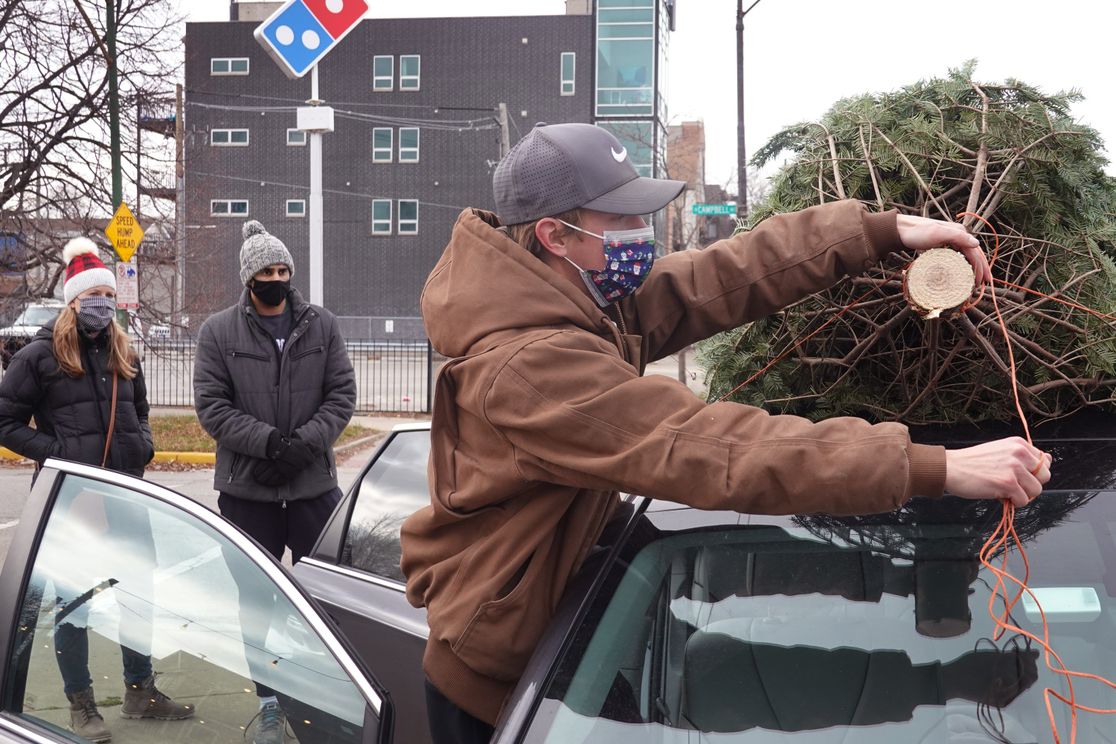

No comments:
Post a Comment